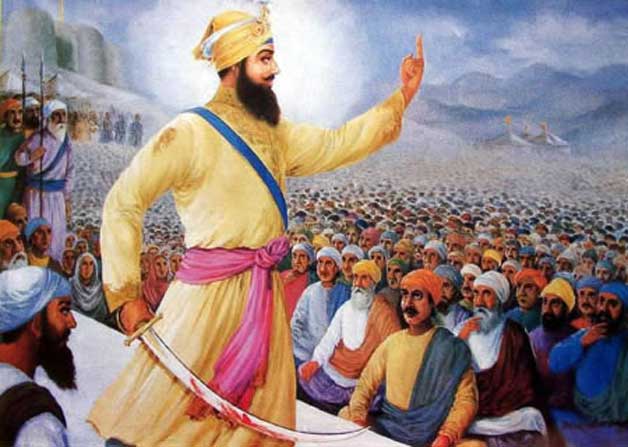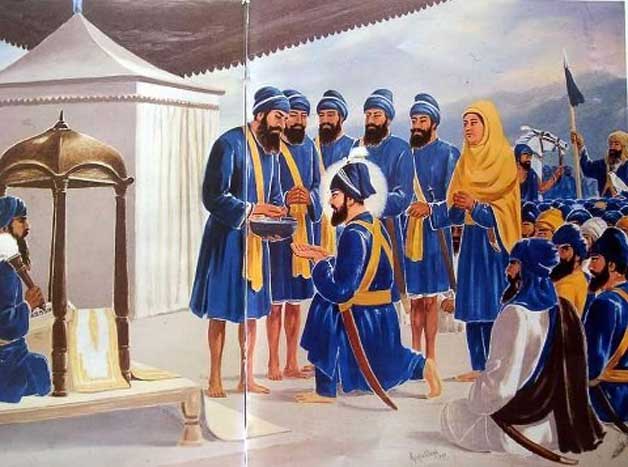
New Delhi: Baisakhi is a harvest festival celebrated across India on 13th April every year. It is the day when farmers thank Lord Almighty and harvest the ‘rabi' crop.
It holds a very important place in every culture in India and is celebrated with immense joy and festivity across the country.
It is celebrated as the New Year for Tamil/ Malayali and Hindus, also known as Naba Barsha in Bengal, Vishakha in Bihar and Rongila Bihu in Assam.
But for Sikhs it holds tremendous religious significance. Sikhs celebrate it as the birth of ‘Khalsa Panth'.
The term ‘Khalsa' means sovereign or free.
It was on this day in 1699, when the tenth Guru of Sikhs, Guru Gobind Singh Ji established the Khalsa Panth.
It was established in order to teach the followers that no ritual or superstition is above Almighty and one should not fall for any superstition. Khalsa Panth also states that believe in one God who is the Master and the Protector of all, the only Creator and Destroyer.
Going back to its origin, it started when Mughal Emperor Aurangzeb beheaded Guru Tegh Bahadur Ji (ninth Guru of Sikhs) as Mughals considered him as a threat because the Guru stood up for the rights of Hindus.
After Guru Tegh Bahadur Ji, his son, Guru Gobind Singh Ji took his place. There was a constant fight between the Guru and the Mughals as Guru Gobind Singh Ji himself was no less a threat to the Mughal Empire.
Guru Gobind Singh Ji wanted to instill courage in his followers.
On the day of Baisakhi in 1699, thousands of devotees came to Anandpur Sahib to seek Guru's blessings. The Guru flashed his sword and said to the crowd, ‘My sword is hungry for a head' and demanded for a head.

Though Guru's demand sent a chilled wave in the crowd, Daya Ram, a Khatri of Lahore, arose and offered himself. Guru Gobind Singh Ji took him to the tent nearby and returned back with his sword drenched with blood and again demanded for a head.
The Guru repeated this until five devotees went along with the Guru. The crowd was scared with the thought that the Guru has killed the five men. But to their shock, Guru Gobind Singh Ji appeared with the five of them wearing turbans and saffron-colored garments.
Then the Guru prepared the holy water called ‘Amrit' and baptized the five volunteers. These five men were called as the ‘Panj Pyare' or the Five Beloved Ones. These five men were- Daya Singh, Dharam Singh, Mohkam Singh, Himmat singh, and Sahib Singh.
He said whenever and wherever five baptised (Amritdhari) Sikhs come together, the Guru would be present. All those who receive Amrit from five baptized Sikhs will be infused with the spirit of courage and strength to sacrifice.
With the establishment of Panj Pyare, the caste system was shunned and the so called lower and upper castes were grouped together. The Panj Pyare were regarded as the first members of Khalsa by Guru Gobind Singh Ji
The Guru also gave the surname of ‘Singh' to every Sikh. He also marked that all Sikh women would represent royalty, and gave them the surname Kaur (Princess).

The Guru then himself got baptized by the Panj Pyare along with his family and became Guru Gobind Singh from Gobind Rai.
Guru Gobind Singh also accorded Sikhs with a unique identity. The Sikhs were instructed to carry the five K's - Kachha (shorts), Kripan (sword), Kesh (uncut hair), Kangha (comb) and a Kara (bracelet).
With the foundation of Khalsa Panth, Guru Gobind Singh Ji eradicated all existing social divisions. The Khalsa Panth states that the lowest of the low have the right to stand with the highest; all are one and have the right to drink “amrit” from the same vessel.
The Guru also stated that the Khalsa Panth is for the help of the needy and not to rule the poor and helpless.
It is believed that the holy water has such a power that after consuming it even a sparrow can fight with an eagle with great valor.
Infact it is also said that one ‘Singh' is equal (in power) to 1.25 lakh people. It is a famous quote in Punjabi – Sawa lakh se ek ladaun, Tabe Gobind singh Naam kahaun
With this Guru Gobind Singh Ji gave all Sikhs the opportunity to live lives of courage, sacrifice, and equality.
Today, Baisakhi is celebrated to mark the birth of Khalsa by Sikhs not only in India but across the world with great enthusiasm and fervor.























